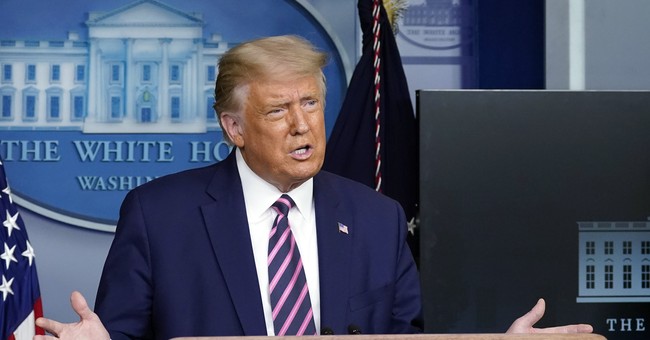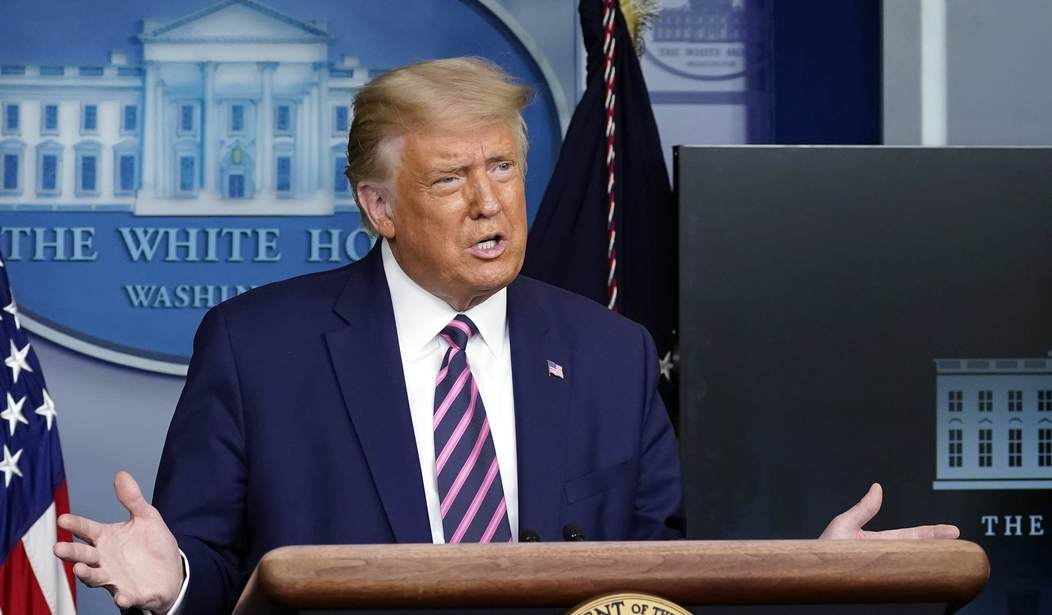
A couple of days ago…at least I think it was only a couple of days because this has been a long week…President Trump made the first real play for the votes of Black America by unveiling his Platinum Plan. My colleague, Jeff Charles, did a great job of covering the background, the plan, and what it may mean in this and future elections in President Trump Breaks GOP Tradition By Unveiling Comprehensive Black Agenda.
This action is a marked departure from the norm when it comes to Republican presidents, who have typically avoided making overt appeals to the black community. However, unlike progressive candidates, Trump’s “Platinum Plan” seeks to push more for free-market solutions to help black Americans generate wealth rather than policies designed to create more government dependency.
The president’s plan includes four pillars: “Opportunity,” “security,” “prosperity,” and “fairness.” During his speech, he said: “For decades, Democrat politicians like Joe Biden have taken Black voters for granted. They made you big promises before every election—and then the moment they got to Washington, they abandoned you and sold you out.”
Trump’s strategy is intended to increase black Americans’ access to capital by nearly $500 billion. Under the plan, black entrepreneurship would rise with the creation of 500,000 new black-owned businesses, and provide 3 million new jobs for black workers.
Personally, I’m not a huge fan of race- and ethnicity-based plans, but I think, as a party, we need to get past this and start seeing racial and ethnic groups as being akin to farmers or the NRA or the AARP. If we’re ever going to break the Democrat deadlock on the Black vote, we can’t continue using the failed strategy of the past, that is, railing about the Democrat plantation and how the Democrats founded the KKK, as a way of changing minds. Think of this as the Middle East. Until last year, we were told the Arabs would never talk directly to Israel. If we moved our embassy to Jerusalem and recognized that city as the capital of Israel, then, we were assured, a major regional war would break out. The best you can say about those statements is that they were bald-faced lies, and it took someone willing to change the rule-set of the game to make progress. So, I’m willing to give the man and the plan a chance.
Among Jeff’s Twitter audience, questions were raised about whether Trump actually believed this and was acting from principle or if this was an election year pander.
Just as I don’t pretend to be a lawyer on the internet, I don’t pretend to be Black, and I’m not speaking from any personal experience. I have been around for a while, and, as with most problems, I have a story that I think can cast some insight.
When I signed into the Berlin Brigade as a second lieutenant (within a couple of weeks of being promoted), one of the first things that struck you about the aftermath of the Vietnam War was that race relations were pretty bad. There was a cross-burning on the Kaserne. Inter-racial fights were not uncommon. Black and white troops did not go to the same bars after duty hours. I’ve long believed that the only reason that the Soviets didn’t just waltz right over to the English Channel was that the Red Army was more f***ed up than we were, and Ivan knew it.
Unlike now, the US Army was blessed with a cadre of professional soldiers in key leadership positions. They were less concerned about what current fad in the civilian world they could emulate and how to impress the left with how progressive they were than reassembling the wreckage and detritus of the Vietnam War into a fighting force that could do what it was paid to do. In 1978, Lieutenant General Julius Becton took command of the premier US combat organization in US Army, Europe. That would be VII Corps headquartered at Kelley Barracks at Stuttgart. Becton had won a Silver Star in Korea, and he was one of the very, very few Black three-star generals.
I hadn’t been in Berlin long when Becton gave a longish interview to Stars and Stripes (at the time, S&S was trying to be a “countercultural” newspaper that treated the chain of command in Europe as though they were war criminals and petty tyrants), and the subject of racism came up. The gist of the interview went like this:
Reporter: how are you going to make everyone hold hands and sing Kumbayah?
Becton: I’m not going to.
Reporter: aren’t you concerned about all the really bad thoughts out there?
Becton: No. I can’t change what you believe but I can damn sure modify your behavior.
It had an elegant simplicity that has stuck with me ever since. You can’t waste your time trying to change what people think. You need to focus on what you can change, which is behavior. When Becton left VII Corps in 1981, he left a combat-ready organization that, though it still had problems, had largely vanquished the racial divisions that had made it nearly combat ineffective.
I think the people questioning Trump’s sincerity have to ask themselves three questions. First, do the Democrats act on their promises to Black America, or are they pandering? Second, if the Democrats are pandering, how is Trump’s pander more offensive? And third, if Trump delivers on his promises, even if they are a pander, are the results less valid?
Let’s take, for instance, sentencing reform. Assuming sentencing reform is just a pander, the questions that must be answered by those carping are a) were federal sentencing procedures changed, and b) are the people released from long prison sentences under the reforms actually out of prison?
We, on the right, have gone through the same thing with President Trump and abortion. Is President Trump, in his heart, pro-life? I really have no way of answering that? Are his pro-life rhetoric and acts a pander, or do they represent an actual conversion? Again, I have no way of knowing. Putting that aside, though, I can look at his actions. He has put overtly pro-life judges on the bench. He is the first president to ever speak at a March for Life. He’s defunded Planned Parenthood and defended the Mexico City rule. He’s signed an executive order that attempts to protect the lives of children who’ve survived abortion.
I hope he’s had a spiritual conversion because we should always pray for the salvation of all souls, but do I sit up at night worrying about it? No. I do not doubt that George W. Bush was, deep down, pro-life. I also know that Donald Trump has done more for the cause of life in less than four years than Bush, whom I admired, did in eight.
My advice to the people worrying about pandering is that they are concerned with the wrong issue. There is no way they can ever truly know the answer to that question and it is not important. They should have precisely two concerns. Does Trump deliver on his promise, and is the initiative executed in good faith, that is, is it resourced and managed properly?
I don’t care about what you believe. I do care about your actions.













Join the conversation as a VIP Member